What is a Blog?
Do you have a small business blog?
If not, you’re missing out on a lot of potential leads and customers. A small business blog can help you connect with your target market, establish yourself as an expert in your field, be a lead generation tool, and boost your sales.
In this post, we’ll discuss what a blog is, the benefits of blogging for small businesses, and provide marketing tips for starting and blog, creating great content, and using your blog to reach your small business goals.
Keep reading to find out how a blog can be your best marketing tool for your small business success!
What is a blog?
A blog is a type of website that typically contains text, images, and links to other websites. Blogs are usually maintained by an individual or a business and are often updated frequently.
The word “blog” is a shortened form of the phrase “weblog.” A blog was originally defined as an online journal or diary where people can write about their thoughts, experiences, and opinions. But it has morphed into so much more.
Blogs are no longer just about interests and hobbies for fun. Blogs are major drivers of small business website traffic, boosters of sales, build personal brands, and is a serious marketing tool for any small business owner wanting to access the power of digital marketing through content marketing.
Before we dive into the benefits of blogging for business, let’s look at where blogging came from, so we can understand where it’s going.
The History of Blogging
The first blog was created in 1994 by a man named Justin Hall. He called his blog “Links from Justin’s Exploding World” and used it to write about his personal life and the things he was interested in.
Since then, blogging has become more popular, and there are now millions of blogs on the internet. There are many different types of blogs, including those that are maintained by organizations, celebrities, and small businesses.
Stats for Business Blogging
Blogging is an amazing tool for small business owners looking to grow their business and reach more customers. Check out these stats from Hubspot:
-
Businesses with blogs get up to 55% more visitors
-
Websites with blogs get on average 434% more indexed pages
-
Websites with blogs have up to 97% more inbound links
-
Businesses that blog are 13x more likely to have a positive ROI
Do these stats make you want to learn more about getting a blog for your small business?
Before we get there, let’s talk about how a blog works and what makes it different than your website. Then you’ll truly understand its power.
How does a Blog work?
A blog is a collection of blog posts. A blog post is an entry or article that is published on a website that has blogging capabilities, like WordPress. Blog posts are typically published chronologically, with the most recent post appearing at the top of the site.
Blogs vs. Web pages
Blog posts are different from website pages. They are typically published more frequently than website pages and are chronological rather than making up the structure of the website.
Do you delete blog posts?
You don’t delete past blog content; they are meant to be archived and remain searchable. You can, however, update old blog posts or create new ones. For example, if you did a blog post on an upcoming event, you wouldn’t delete the post after the event was complete. Just like a news or magazine site doesn’t delete old stories, instead, old ones are pushed back by new ones. Same with your blog posts.
This may be obvious to you, or this may be a completely new concept. We have had many requests from our marketing agency clients to delete old posts before they understood how their blog worked and how it could benefit their business.
Blog Pages Use Categories and Tags
Another difference is that blog posts can be categorized and tagged. This allows for some unique organization and display options that pages on your website just can’t do.
For example, you can create a page and have the posts from a specific category show on that page.
On the Automotive Museum Guide website, we created a category for each state, each region, and each type of museum. Then we created blog posts for each museum and categorized them according to these three categories.
That allows us to let the blogging software (in our case WordPress), show pages based on those categories. We have a Georgia page that shows all the posts categorized with Georgia. And a Texas page that does the same. But then we also have a page for tractor museums and another for motorcycle museums. Tags are similar and can also be used to organize content. This kind of organization doesn’t work with pages; it’s special to blogging.
Benefits of small business blogs
So now that you understand how a blog works, let’s go over what makes blogging great for small businesses.
1) A blog can help you attract new customers.
By writing blog posts that are relevant to your products or services, you can attract new customers who are interested in what you have to offer. Your blog pages are like little beacons for Google and will serve as answers to the many questions your customers may be asking search engines.
Have you searched for a recipe online? That recipe is most likely a blog post. Same with health information, fitness workouts, home improvement projects, and more. Many small businesses harness the power of a blog to deliver and organize information for searches and new customers.
2) A blog can help you build relationships with your customers.
By providing valuable information and engaging with your readers, you can develop strong relationships with your customers. These relationships can lead to repeat business and loyal customers.
Due to the publishing nature of blog posts, many businesses publish on a consistent schedule, giving not just readers but search engines new, fresh content that they love. Readers will come to expect new content each week, month, or even each day, depending on your blogging schedule.
3) A blog can help you drive traffic to your website.
By optimizing your blog posts for search engines and promoting your blog on social media, you can drive traffic to your website and increase your chances of making a sale.
As I mentioned, search engines love blog posts – they are fresh, generally information-rich, and they are effective – WordPress sites make up 40% of the internet!
4) A blog can help you showcase your expertise.
By writing blog posts that are informative and well-written, you can position yourself as an expert in your industry. This can help you attract new customers and win over new business.
Since blog posts are easy to create, easy to digest, and easy to share, they remain a great way to get more eyes on your business and a way to showcase your authority and expertise.
5) A blog can help you boost sales.
By including calls to action in your blog posts, you can encourage your readers to buy your products or services. These calls to action can increase your sales, drive traffic to your products and services and be the hook to bring in more customers.
Blogging for Small Business Owners
If you’re a small business owner who is not blogging, you’re missing out on a valuable opportunity to reach new customers and grow your business.
Each blog post is an opportunity for small business owners to connect with customers, solve their problems, showcase their expertise, and even book appointments and sell.
To be successful with small business blogging, you need to create great content. However, it’s quality, not quantity, that will help your blog take off and build a relationship with your audience.
What makes a quality small business blog post?
Your blog posts need to offer some kind of value to the reader.
No matter how long, how detailed, or what the topic, the reader has to come away from the blog post knowing something new. The best-case scenario is that they walk away from it with a solution to a problem they’re facing.
Each post should be comprehensive, whether it’s 3000 words or 300 words. It should accomplish whatever it sets out to do.
For example, if your blog post is going to teach the reader what to look for in a kitchen remodel, it should get them ready to start considering options.
Quality is also determined by what a piece of content doesn’t contain. It shouldn’t have any fluff, any inaccuracies, or anything that might confuse or mislead readers.
The best small business blogs are consistent
When people read a blog, they expect consistency. One bad post that doesn’t offer the same value or that is too off-brand can ruin this consistency.
One example of this would be a post that doesn’t deliver on its promises. If it says at the beginning that the reader is going to get 10 actionable tips, it should include 10 actionable tips.
A good quality control test is to set your work aside and read it again the next day, putting yourself in your reader’s shoes. Imagine you’ve come across this blog looking for solutions to your problems and see how the post you wrote measures up.
Developing a system for your content creation will help you create content you’ll be proud to promote.
How to promote your small business blog posts
If you spend a great deal of time creating high-quality content for your blog, you naturally want that content to be seen. A great way to spread the word is through social media marketing.
Sharing Your Posts on Social Media
Whenever you publish a new post on your blog, tell your social media followers about it. Include a link and tell people what they can expect to learn from it.
Don’t just say, “Here’s my new blog post.” Try to entice your followers with something like, “Are you ready to banish that clutter once and for all? Learn how here!”
More people will see your posts if you’re on social media interacting every day, so spend time regularly liking, commenting, sharing, and building relationships with your audience.
One great method to increase engagement is to promote other bloggers to your audience. They’ll return the favor by sharing your content.
Promoting Your Blog On Other Sites
You can go beyond just Facebook, LinkedIn, and Twitter. Use platforms like Medium, Reddit, and Tumblr to post summaries of your content or select pieces with a link back to your blog.
These are sites that have a great deal of traffic and their own audiences that can get you more exposure.
Using Hashtags to Promote Your Content
If it’s appropriate to the social channel you’re using, include a few hashtags that are relevant to your business and your content. These are keywords and phrases preceded by the “#” symbol that make your content searchable. They’re especially important on Twitter and Instagram.
Don’t just post on social media about your blog posts and forget about it. Continue to interact with people who comment and share. This is how you can start truly building an engaged audience and, eventually, a dedicated social media following.
Getting started with Small Business Blogs
Start blogging today to reap the many benefits it has to offer! If you want to learn more about blogging for your small business, check out more here.
Blog FAQs:
1) What is a blog?
A blog is an online journal or diary where people can write about their thoughts, experiences, and opinions.
2) Who can blog?
Anyone can blog! You don’t need any special skills or qualifications. All you need is something to say and a way to share your thoughts and business with the world.
3) How often should I update my blog?
There is no set answer to this question. Some bloggers update their blogs daily, while others may only update once a week or even less frequently. It all depends on how much time you have and what you want to write about.
4) Do I need to be a good writer to blog?
No, you don’t need to be a good writer to blog. However, it is important to be clear and concise in your writing so that your readers can understand what you are trying to say.
5) What can a blog be about?
You can write about anything you want! Some popular blog topics include travel, food, fashion, beauty, lifestyle, how-to articles, and personal experiences, but writing about your business, products, service, and your customers is a great way to use your blog to promote your business.
6) How do I promote my blog?
There are many ways to promote your blog. You can share your blog posts on social media, participate in online communities and forums, and collaborate with other bloggers.
7) Can a blog make money?
There are a few ways to make money from your blog. You can sell advertising space on your blog, write sponsored blog posts, or create and sell products or services through your blog. Affiliate marketing is also a key way many bloggers make money. They include affiliate links to products and services inside their interesting blog content, and if readers buy from these links, they get a percentage of the sale without any additional cost to the buyer.
8) What are the benefits of blogging?
Some of the benefits of blogging include attracting new customers, building relationships with your readers, driving traffic to your website, and showcasing your expertise.
9) What are some common blog phrases?
Some common blog phrases include “blogging,” “blogger,” “blog post,” “weblog,” “RSS feed,” “trackback,” “pingback,” and “comment.”
10) How many words is a blog post?
A blog post can be any length, but it is typically between 300 and 800 words, but that doesn’t mean that is best for your business. The average length of a blog post is now 1,269 words, but according to Hubspot, “business blogging statistics suggest that 2,250-2,500 words represent the optimal length needed to get the most organic traffic in B2B areas, like finance, although different niches might have different ideal word counts.”
11) Can a blog be anonymous?
Yes, a blog can be anonymous. However, it is important to consider the consequences of being anonymous before you choose this option. If you are doing it for your business, you will most likely be the voice of your blog.
12) What is an RSS feed?
RSS stands for “Really Simple Syndication.” An RSS feed is a way to subscribe to a blog so that you can receive new posts automatically.
13) What is a trackback?
A trackback is a link from one blog post to another. This is often done when someone is writing a response to or reacting to another blog post.
14) What is a pingback?
A pingback is a notification that is sent to a blog when another blog links to it. This is a way for bloggers to keep track of who is linking to their blog posts.
15) What is a comment?
A comment is a response or reaction to a blog post. Comments can be left by anyone, including the author of the blog post.
16) What is a blog category?
A blog category is a way to organize your blog posts. You can create categories based on topics, keywords, or anything else you want.
17) What is a blog tag?
A blog tag is a keyword or phrase that you can assign to a blog post. Tags are used to help readers find blog posts that are relevant to their interests.
18) Do I need to copyright my blog?
You do not need to copyright your blog, but it is a good idea to include a copyright notice on your blog to let people know that you own the content.
19) Can I use images on my blog?
Yes, you can use images on your blog. However, it is important to make sure that you have the right to use the image and that you are not violating any copyright laws. If you are looking for free stock photos, try these sites.
20) What is a blogroll?
A blogroll is a list of links to other blogs that you like or recommend. This is a way to share your favorite blogs with your readers.
21) What is blog promotion?
Blog promotion is the process of promoting your blog to increase traffic and readership. There are many different ways to promote your blog, including social media, guest blogging, and blog directories.
22) What is a guest blog post?
A guest blog post is a blog post that is written by someone other than the author of the blog. You can guest post on another site to get access to their audience and get more eyes on your business and expertise.
23) Do I need to have a website to start a blog?
No, you don’t need a website to start a blog. However, if you want people to be able to find your blog, it is a good idea to create a website for it. You can create a blog on WordPress.com or Blogger.com without having your own website, but I do not suggest this if it will be for your business.
24) How do I start a blog?
Starting a blog is easy! You can create a blog for free on websites like WordPress.com, Blogger.com, or Tumblr. But for your business, you will want more control over your blog; you can create a self-hosted blog using WordPress – usually just adding the blog function to your current site. If you want to learn more about blogging for business, check out more here.
25) Can I have a blog without WordPress?
Yes, you can have a blog without WordPress. There are many different blog platforms available, including Blogger, Tumblr, and SquareSpace, but you often are sacrificing control and options.
About Digital Marketing Expert Torie Mathis

Torie hosts SMART AF, a show for non-techy entrepreneurs looking to grow their business, with her husband Sean and is the creator of SMART AF Magazine. Learn from Torie at the Smart Arsenal and on her channel.
What do you think? Let's talk! Leave a comment.
YOU MAY ALSO LIKE
Hi! I'm Torie!

You don’t need crazy tech skills, buckets of cash, or dedicated staff to market your business. You don’t even need a lot of time.
What you need is to be SMART.
Smart Marketing For
Get Smart AF
DELIVERED TO YOUR INBOX
from your Digital Marketing Coach Torie Mathis!
Let's get SMART!
Let's Connect!

*Posts may contain affiliate links. If you use these links to purchase, I may earn a commission at no additional cost to you.

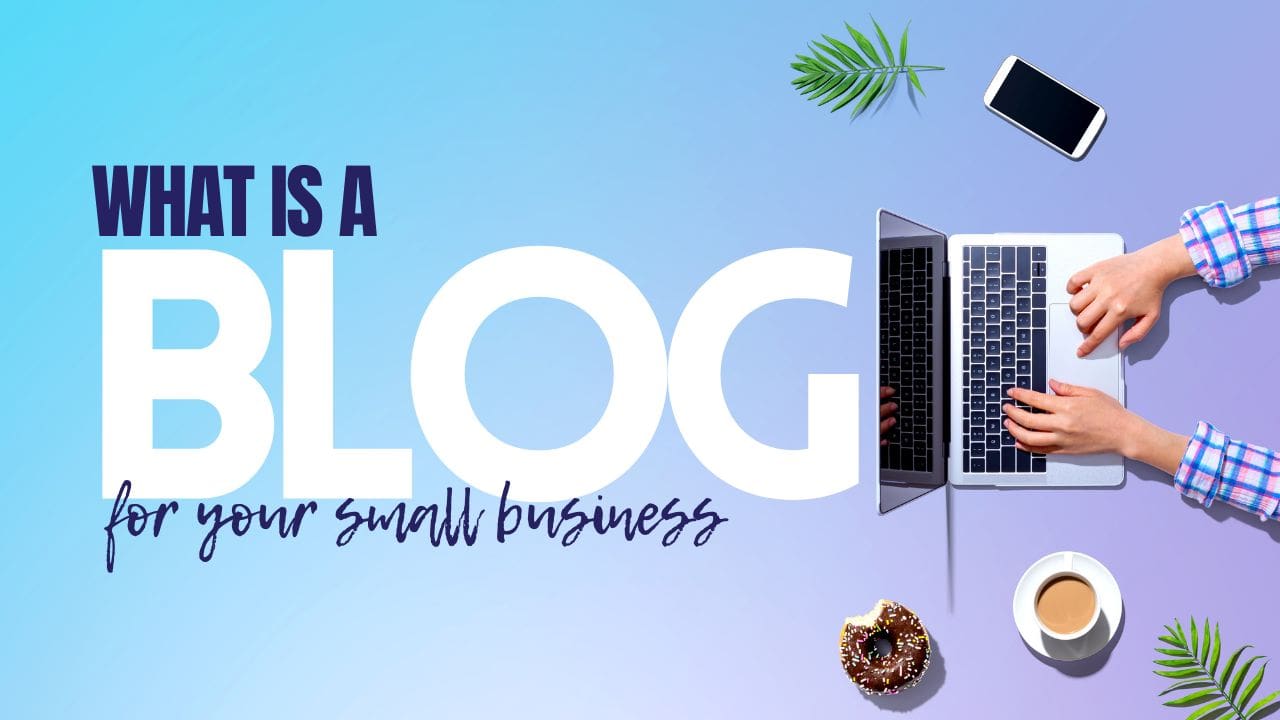






 I help entrepreneurs learn digital marketing.
I help entrepreneurs learn digital marketing.


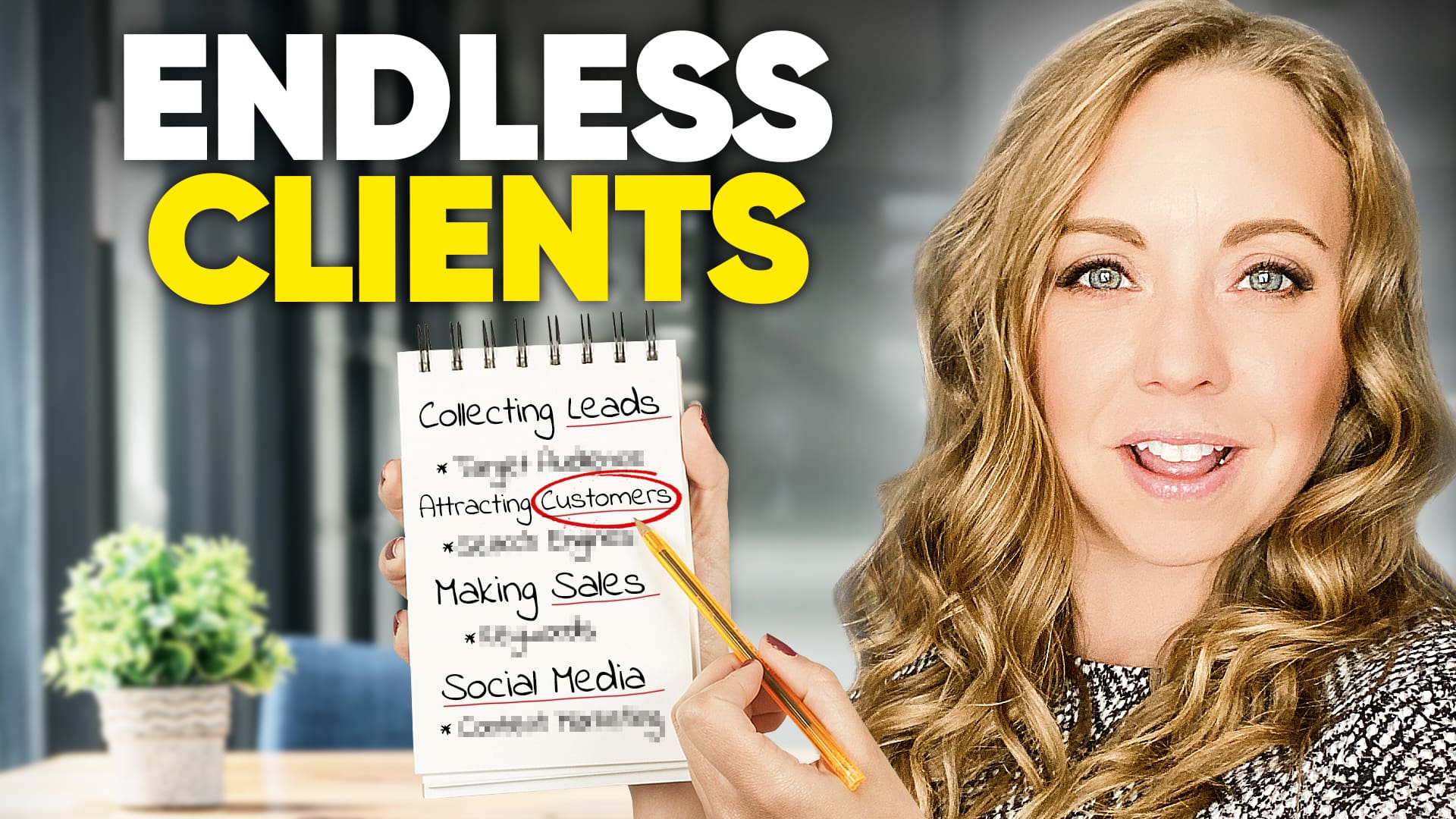
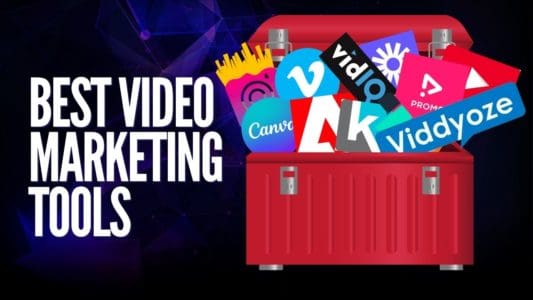

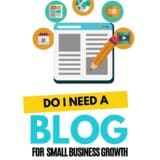

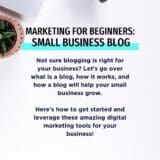

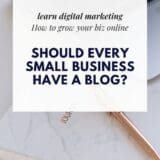


0 Comments